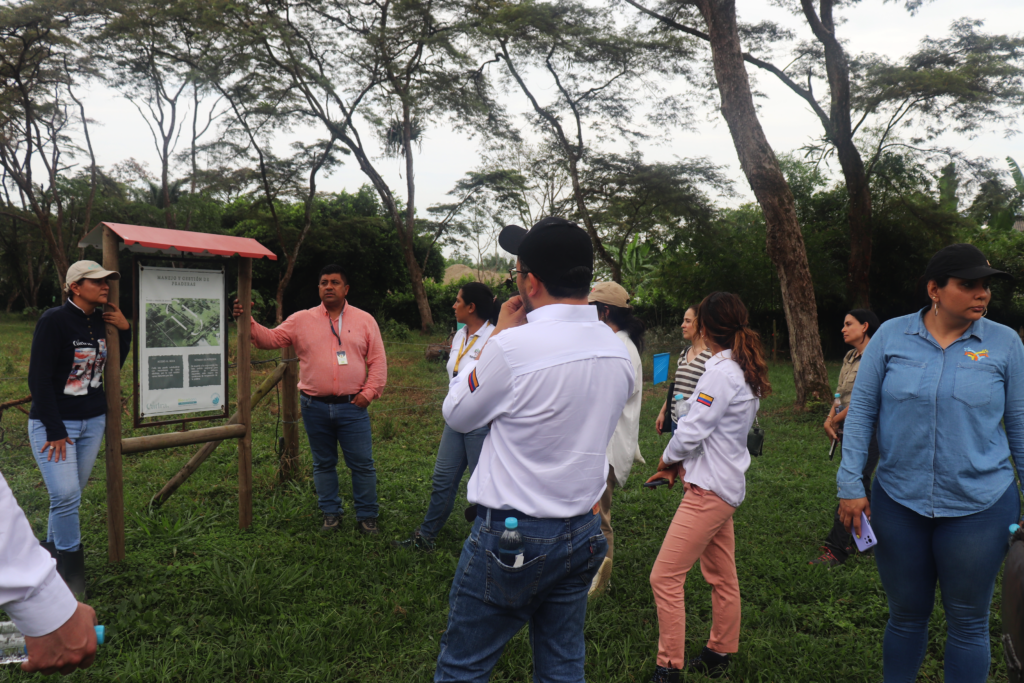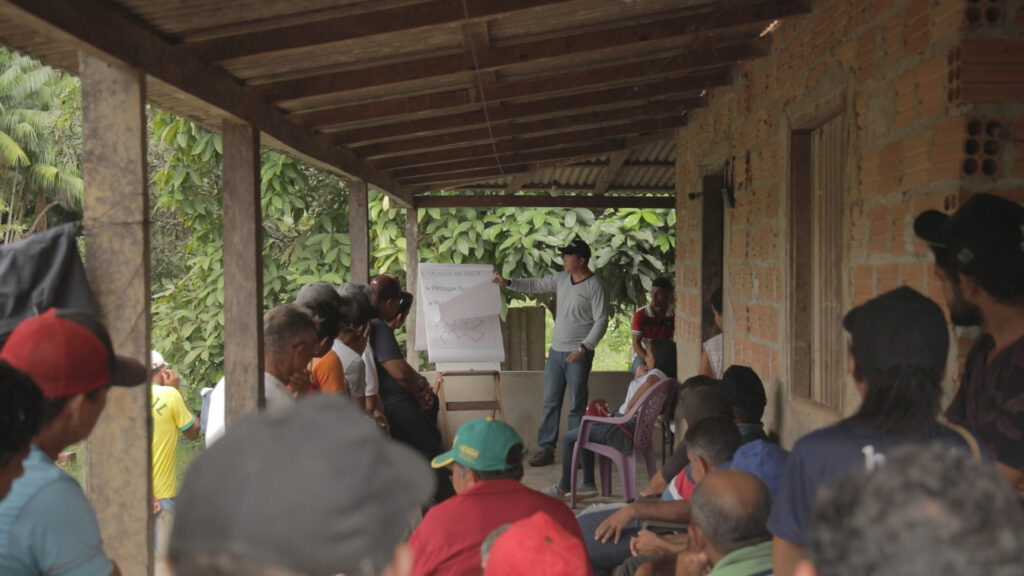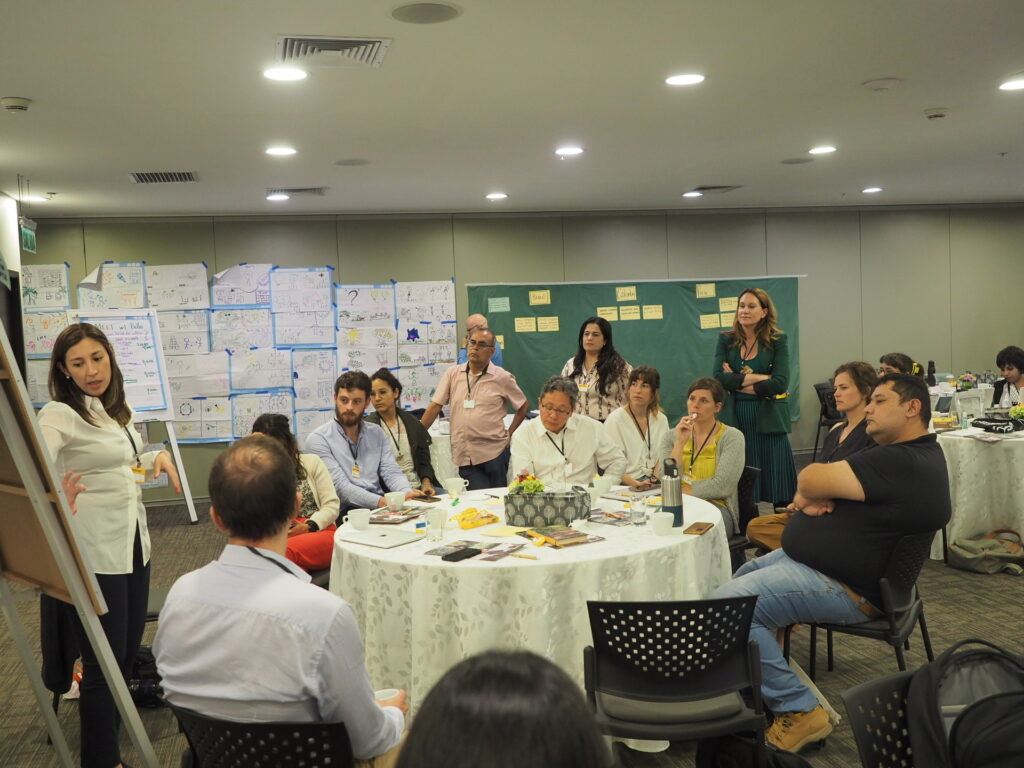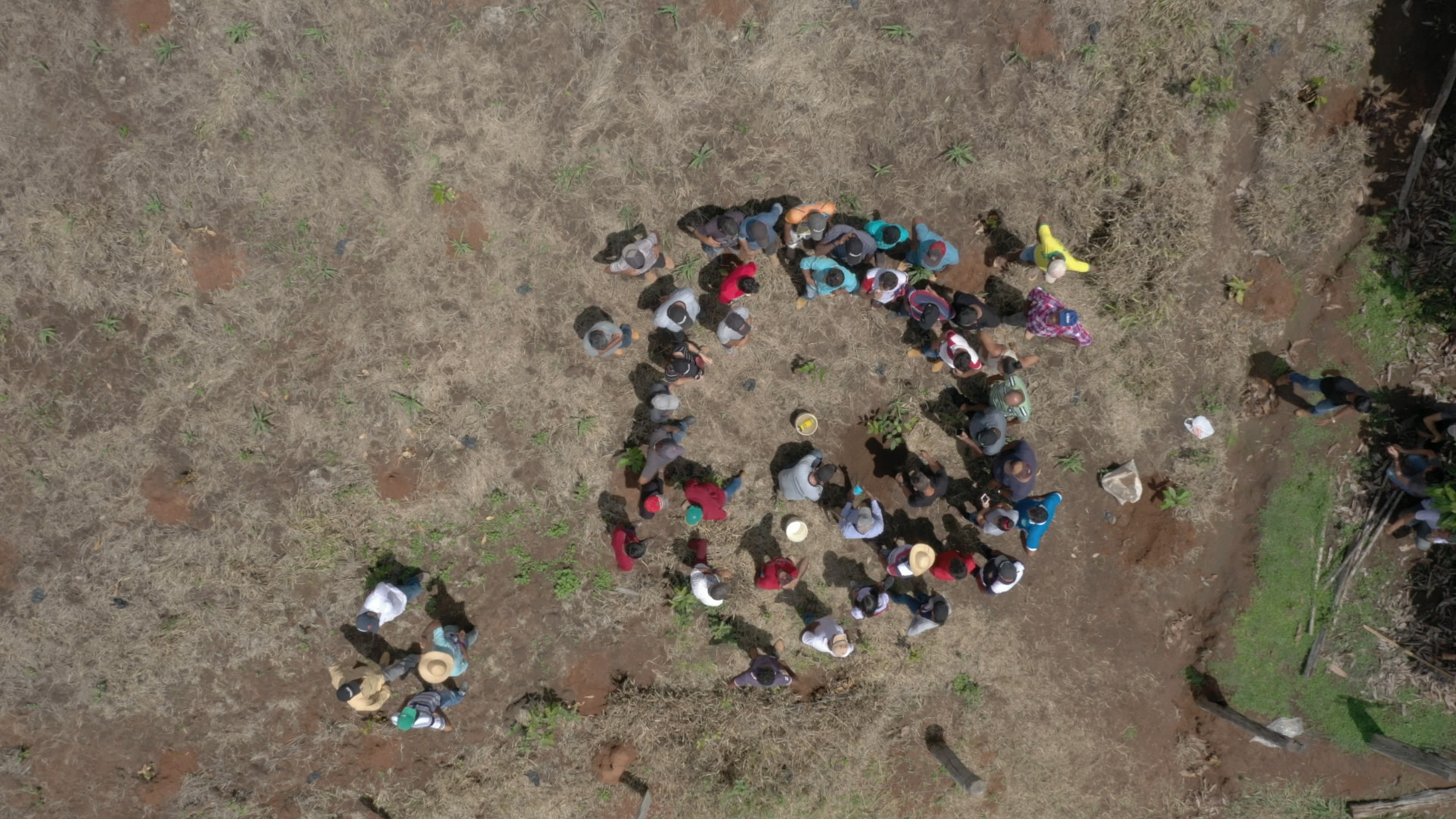The basis of our PMEL work is careful planning, which sets the course for clear goals for our work. Constant monitoring provides a real-time picture of progress that allows for agile adjustments as we adapt to changing dynamics. Meticulous evaluation is the mirror that shows where we are and how we can maximize our impact. As a programme winds down, we look to the accumulated data to learn from our successes and challenges, on an ongoing basis. This not only strengthens our current interventions, but also pushes us towards constant evolution.
The challenge lies in finding the commonalities among all these projects. It is necessary to balance expectations between what is ideal in theory and what is possible in practice.
Ensuring quality implementation of our PMEL programme in field projects implemented by different teams across different countries and commodities is a complex task. The challenge lies in finding the commonalities among all these projects. It is necessary to balance expectations between what is ideal in theory and what is possible in practice. The awareness that conditions in the field may vary substantially provides an essential agility where we can align with the available data.
Importance of active listening
Meeting this challenge of complex programmes requires a constant commitment to quality and a critical approach. Trust in our team and the development process is one of the fundamental pillars of this approach. This trust is supported by active listening, allowing a deep understanding of the operational difficulties and the proposed solutions. All these points are evidence of a monitoring strategy that seeks not only precision, but also a culture of continuous improvement and adaptability to the specific contexts where projects are implemented.

Essential indicators
While flexibility is important, supporting the team’s work requires defining unwavering minimum criteria on how to manage projects and the data that are collected, analyzed and reported. This involves aligning essential indicators with the organizational strategy, as well as the creation of shared basic definitions of these indicators and the minimum data points needed to ensure uniform understanding and consistent handling. This approach is based on the creation of a solid structure that not only recognizes the expertise of the team, but also establishes clear and measurable standards for assessing project progress.
A dedicated team
That’s why Solidaridad has at least one person dedicated to leading and overseeing PMEL initiatives in each country where we have an office. They are the watchful eyes of the progress and challenges within the local context, and the spokespersons for the minimum criteria around PMEL.
In Latin America, Solidaridad has a PMEL group that holds monthly meetings where procedures, lessons learned, and actions developed in each country are discussed, which promotes knowledge exchange and contributes to the constant improvement of monitoring practices.
At Solidaridad, we understand that collaboration and constant exchange are key to PMEL’s success. This interconnected network of leaders and working groups allows us to move forward together, learn from each other and ensure that our practices are always aligned with the best methodologies and approaches, globally. This connection and alignment between countries becomes even more relevant when we work on multi-country projects, as is the case with Amazonia Connect.

Case study: Amazonia Connect
Amazonia Connect is a 5-year partnership between USAID, Solidaridad, Earth Innovation Institute, National Wildlife Federation and the University of Wisconsin-Madison. It aims to promote and expand low-carbon commodity production to enhance biodiversity conservation and support climate action in Brazil, Colombia and Peru, together with producers, businesses, local governments and financial institutions. The initiative operates in four commodity supply chains, including dairy, beef, coffee and palm oil, and involves four Solidaridad offices: North America, Colombia, Peru and Brazil.
Developing a comprehensive PMEL plan was no easy task. It involved aligning strategies that would work effectively for all, ensuring the accurate measurement of efforts, and compliance with donor-specific requirements. To address this complexity, a PMEL working group dedicated to the project was formed, led by a regional expert with experience in coordinating cross-border initiatives. This team became the catalyst for overcoming obstacles and designing a robust and adaptable approach to the particularities of each country and commodity.

This working group defined minimum guidelines for the project that included a theory of change that would allow each country to define its own lines of work and methods for implementation. In addition, indicators were aligned with USAID requirements, along with the minimum data points needed for each indicator. Monitoring frameworks and reporting frequencies were also agreed in collaboration with each country, taking into account the particularities of their specific programs, commodities and contexts.
The result of this joint effort was the creation of a monitoring, evaluation and learning plan that serves as the basis for the initiative. Importantly, this plan is reviewed annually and updated as needed, based on the results documented in reports and annual pause-and-reflect sessions. This dynamic process reflects the flexibility baked into the approach taken, allowing for adaptation as needs change and challenges are identified. In this regard, the flexibility and active engagement between each office played a central role in overcoming challenges and ensuring the utility of the plan across several countries.
In initiatives of this scale, where efforts are intertwined across multiple borders, close coordination between PMEL teams becomes crucial.
In initiatives of this scale, where efforts are intertwined across multiple borders, close coordination between PMEL teams becomes crucial. Ensuring that we all share similar approaches, learn from our joint experiences and benefit from best practices at regional and global levels is essential to maximize the positive impact we seek in the Amazon region.
The challenge is how to build this common ground while respecting the limitations and specificities of each team. The first year of the project has designated PMEL focal points in each country and was dedicated exclusively to establishing these common parameters and adequately defining the baseline. Having this PMEL baseline properly constructed from the outset will ensure the success of the entire process throughout the project.

